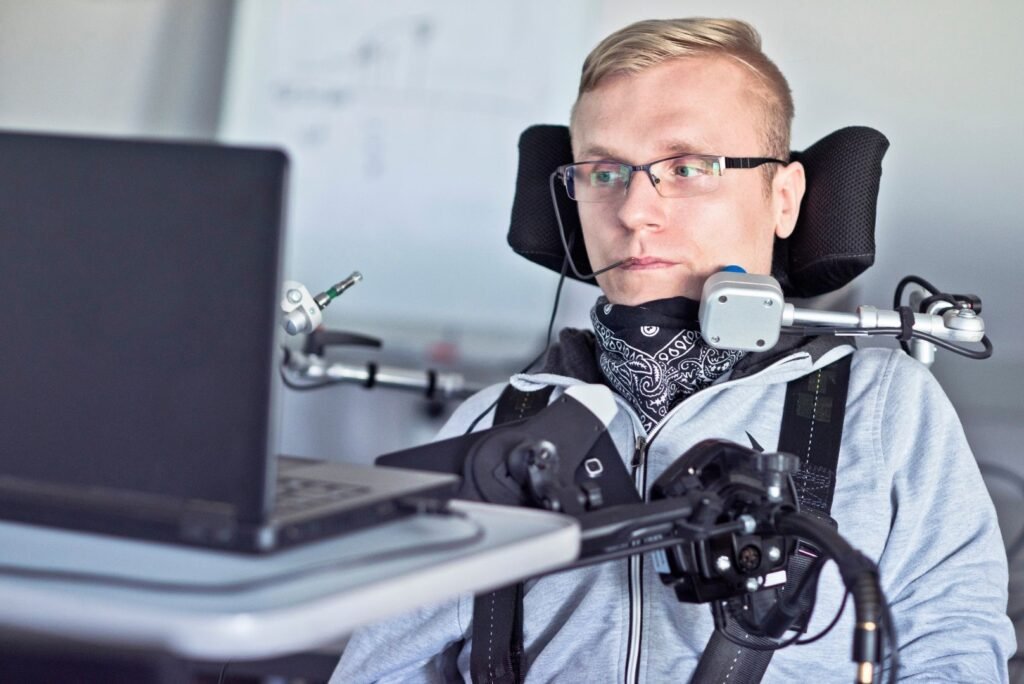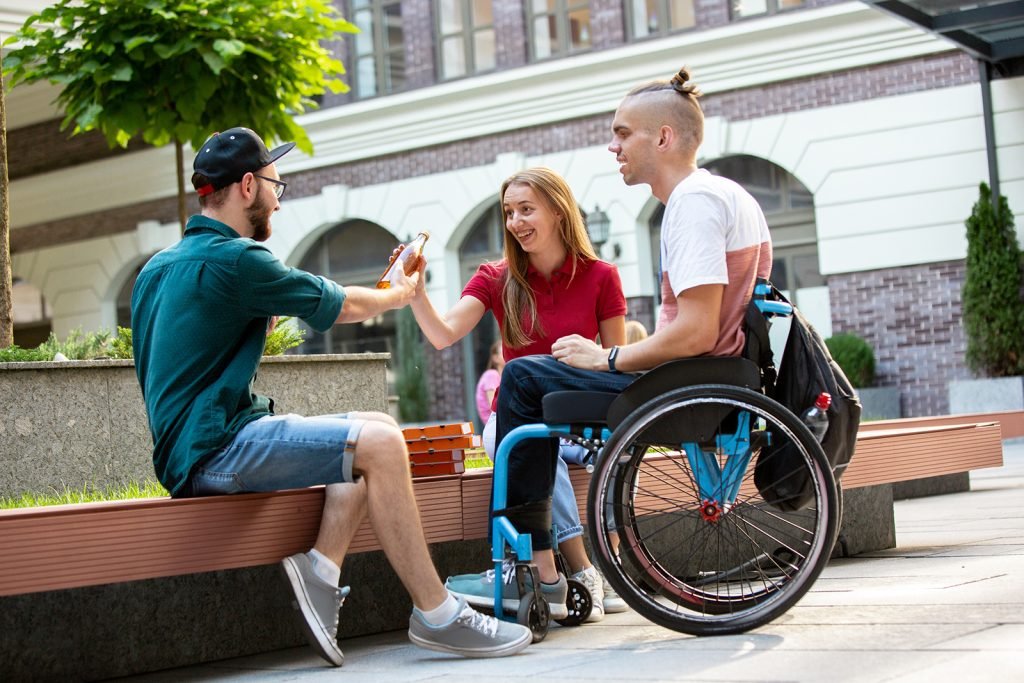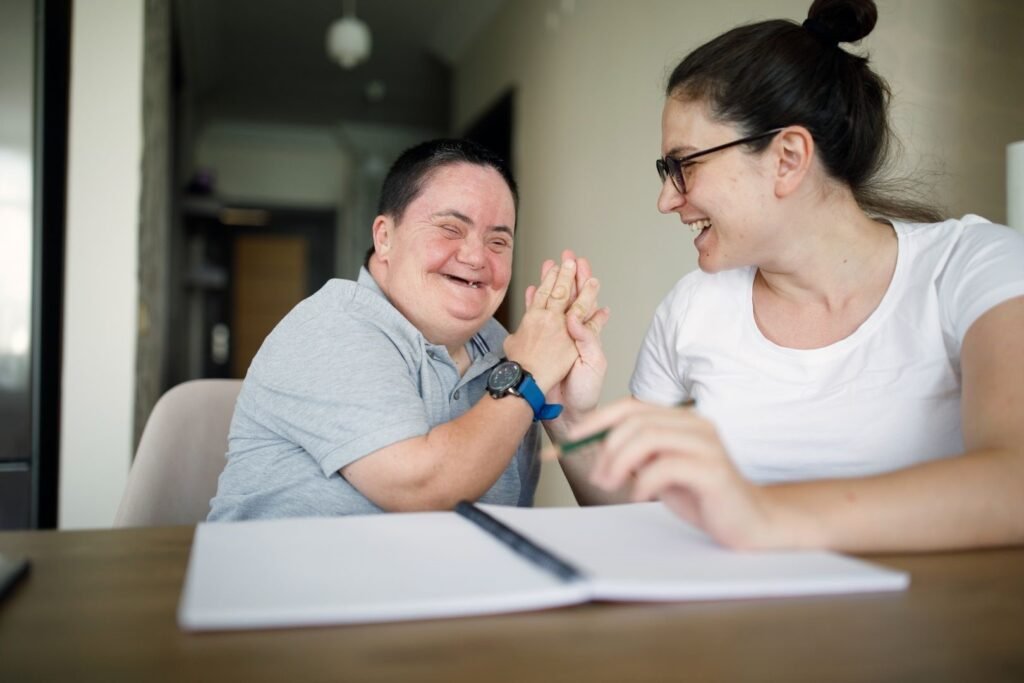Technology has revolutionised the lives of individuals with disabilities, dramatically increasing their independence and quality of life. From communication aids to mobility solutions, technological advancements continue to break down barriers, allowing people with disabilities to engage more fully with the world around them. This article explores the various assistive technologies that are transforming disability services in Melbourne.
Assistive Technologies for Communication
Communication is a fundamental aspect of human interaction. For individuals with disabilities, assistive technologies can bridge the gap, facilitating more effective and independent communication.
Screen Readers
For those with visual impairments, screen readers convert text to speech, enabling users to listen to written content. This technology is invaluable for accessing information, navigating the internet, and performing everyday tasks that require reading.
Augmentative and Alternative Communication (AAC) Devices
AAC devices assist individuals with speech or language difficulties by providing alternative methods of communication. These devices range from simple picture boards to sophisticated electronic systems that generate speech from text or symbols.
Speech-to-Text Software
This software is essential for individuals with physical disabilities that affect their ability to type or write. By converting spoken words into written text, speech-to-text software allows users to communicate effectively, whether they are drafting emails, creating documents, or engaging in online conversations.
Assistive Technologies for Mobility
Mobility is crucial for independence, and assistive technologies have made significant strides in this area. These innovations provide freedom of movement and enhance the quality of life for individuals with mobility impairments.
Power Wheelchairs and Scooters
These devices offer a significant boost in independence, allowing users to move around with ease. Modern power wheelchairs and scooters come with advanced features like joystick controls, adjustable seating, and even smart technology integration.
Exoskeletons
Exoskeletons are wearable devices that support and enhance the wearer’s movement capabilities. For individuals with severe mobility impairments, exoskeletons can provide the ability to stand and walk, fostering greater independence and physical well-being.
Smart Home Technology
Voice-activated devices and automated systems have become game-changers in assistive technology. Smart home technology allows individuals to control lighting, temperature, and security systems, as well as perform daily tasks, all through voice commands or mobile apps.
Assistive Technologies for Learning and Cognition
Educational and cognitive support technologies are vital for individuals with learning disabilities or cognitive impairments. These tools aid in overcoming challenges and enhancing learning experiences.
Text-to-Speech Software and Audiobooks
For those with reading disabilities, text-to-speech software and audiobooks provide an alternative way to access written content. These tools can significantly improve comprehension and retention of information.
Mind Mapping and Organisation Apps
These apps help individuals with learning difficulties to organise their thoughts, plan projects, and stay focused. Visual aids like mind maps can make complex information more manageable and easier to understand.
Memory Aids and Reminders
Devices and apps that offer memory aids and reminders are beneficial for individuals with cognitive impairments. These tools help users remember important tasks, appointments, and medication schedules, promoting greater independence.
Emerging Technologies
The future of assistive technology looks promising, with several cutting-edge developments on the horizon.
Brain-Computer Interfaces (BCIs)
BCIs represent a groundbreaking advancement, allowing direct communication between the brain and external devices. This technology holds immense potential for individuals with severe disabilities, enabling them to control devices and communicate in new ways.
Virtual Reality (VR) and Augmented Reality (AR)
VR and AR technologies are being explored for their therapeutic and rehabilitation applications. These immersive technologies can create interactive environments that aid in physical therapy, cognitive rehabilitation, and skill development.
3D Printing
3D printing is revolutionising the production of assistive devices. This technology allows for the creation of affordable, customisable solutions tailored to the specific needs of individuals, making assistive devices more accessible and effective.
Challenges and Considerations
While the advancements in assistive technology are impressive, several challenges must be addressed to ensure these innovations are accessible to all.
Cost
The financial barrier is a significant concern. Many assistive technologies are expensive, and not all individuals have access to funding programs or insurance coverage. It is essential to explore solutions that make these technologies more affordable and accessible.
Training and Support
Proper instruction and ongoing technical assistance are critical for the effective use of assistive technologies. Users need to be adequately trained to utilise these tools to their full potential.
Accessibility and Usability
Designing technology that is easy to use for people with diverse disabilities is crucial. Developers must prioritise accessibility and usability to ensure these technologies meet the needs of all users.
Conclusion
Technology has the power to transform the lives of individuals with disabilities, fostering greater independence and improving quality of life. As disability services in Melbourne continue to embrace these innovations, we can look forward to a future where everyone has the opportunity to reach their full potential, regardless of their physical or cognitive limitations. With ongoing advancements and a focus on accessibility, the future of assistive technology is bright.
If you or a loved one are looking for comprehensive disability services in Melbourne, Sympa Care is here to help. Contact us today to learn more about our innovative solutions and how we can support your journey towards greater independence and quality of life.





